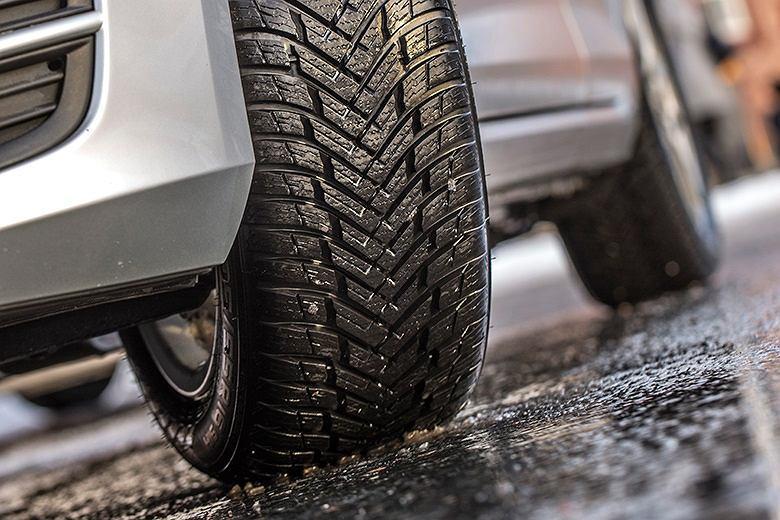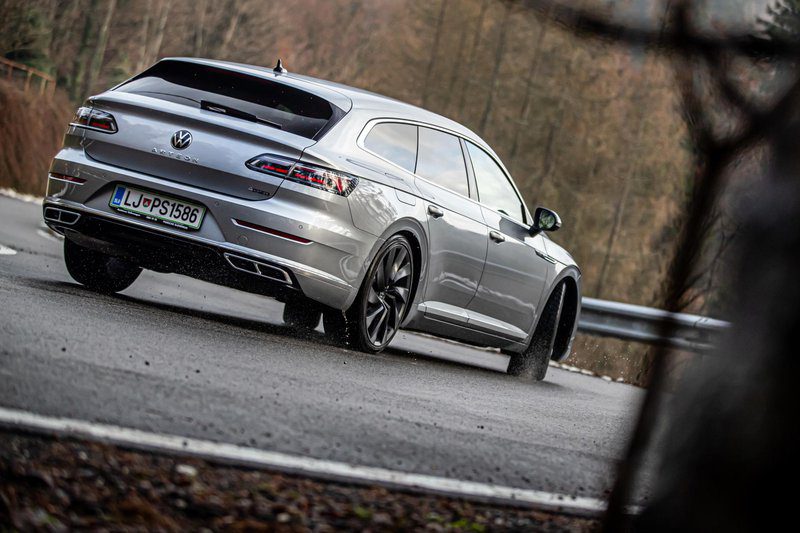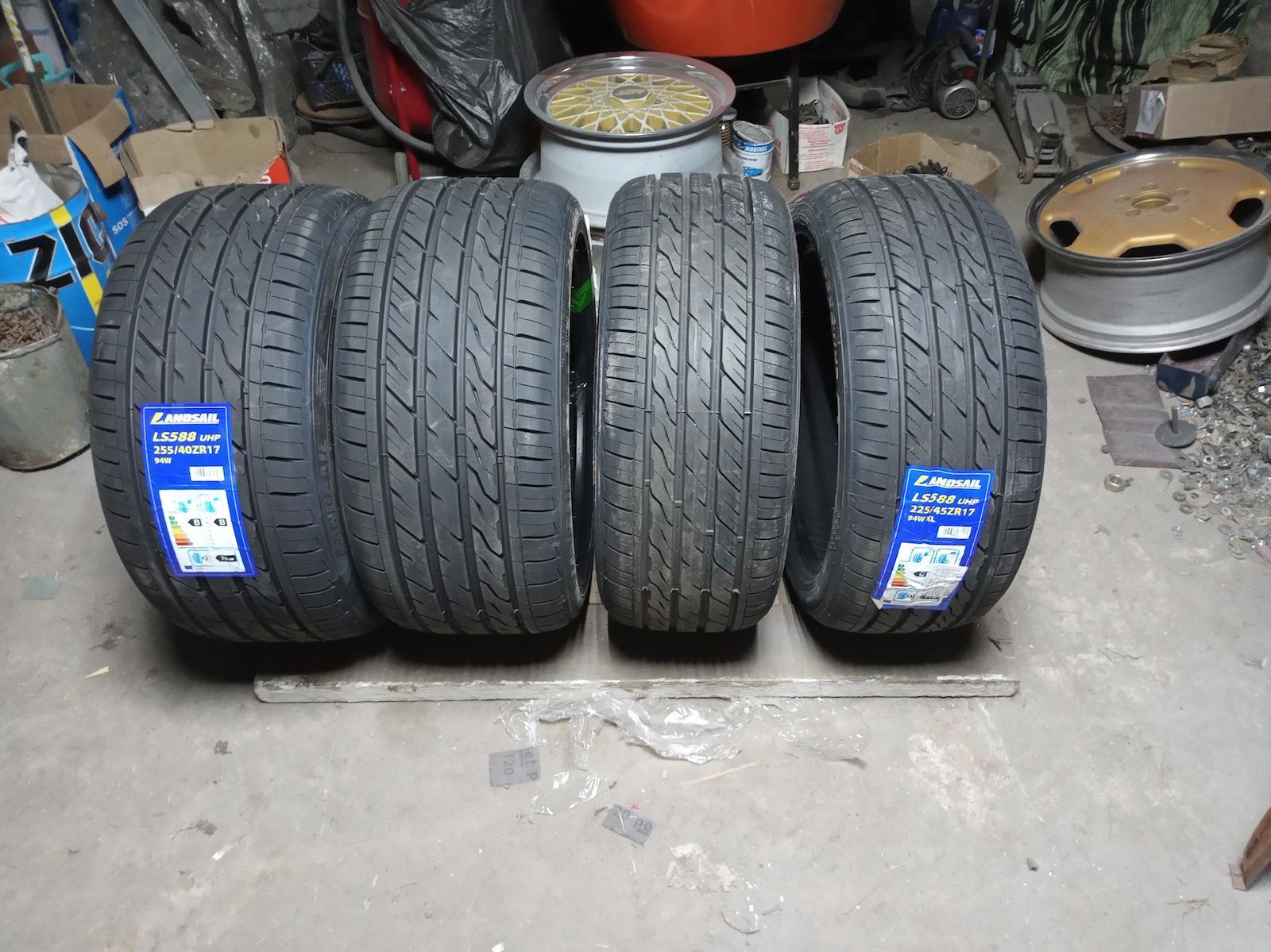
All season tires. Advantages and disadvantages. Is it worth buying?
Content
 When we decide to buy a new set of tires, we have two options: tires designed for a certain season or all-season tires with winter approval. Which choice is best and for whom? Does it matter what type of car we buy tires for? What are the advantages and disadvantages of all season tires?
When we decide to buy a new set of tires, we have two options: tires designed for a certain season or all-season tires with winter approval. Which choice is best and for whom? Does it matter what type of car we buy tires for? What are the advantages and disadvantages of all season tires?
About a dozen years ago, drivers used one set of tires all year round—not because good quality all-season tires were already available. At that time, winter tires were a novelty on the Polish market, and at that time they had many opponents who today cannot imagine driving without winter tires and appreciate their properties on slippery, wet and snowy surfaces.
The tire industry improves its products year after year, and new tires are becoming more innovative and have better parameters. However, this does not mean that we have created tires that will give us full grip in all conditions. Tire companies compete to develop innovative solutions. “Today's all-season tires from well-known manufacturers are a completely different product than the rubbers used in the 80s. Modern technologies make it possible to combine some of the characteristics of winter and summer tires in one product,” says Piotr Sarnecki, CEO of Polish Tire. Industry Association (PZPO). Are all season tires as good as their seasonal counterparts?
Benefits of all season tires
Having two sets and changing tires twice a year is quite a hassle for many drivers, so it's certainly very convenient not to change all-season tires seasonally - as the name suggests, these tires are for all 4 seasons. year. All-season tires have a rubber compound that is softer than summer sets, but not as soft as regular winter tires. They also have a sipe tread pattern to bite into the snow, but are not as aggressive in design as winter tires.
See also: Customer Complaints. UOKiK controls paid parking
Looking at the structure of the tread itself, you can see that all-season tires have compromise properties. Road parameters, such as braking distances on various surfaces, hydroplaning resistance or cornering grip, show that their performance is also averaged - in summer they are better than winter tires, in winter they are better than summer tires.
Before buying all-season tires, you should make sure that they have the only official winter approval mark - a snowflake symbol against three mountain peaks. A tire without this symbol cannot be considered an all-season or winter tire because it does not use a rubber compound that provides grip at lower temperatures.
Disadvantages of all season tires
It is not true that buying all-season tires is cheaper than seasonal kits - all-terrain tires are only suitable if you prefer a conservative driving style and are not a frequent user of expressways and motorways. Summer tires have relatively low rolling resistance compared to all-season tyres, resulting in lower fuel consumption and less noise entering the car's interior - one of the reasons why many drivers find seasonal tires so much more comfortable to drive.
All-season tires are always a compromise - their properties will allow you to drive safely in more weather conditions than summer or winter tires alone, but when driving in summer they will wear out much faster than summer tires and will not provide us with the same high level of safety. It will also be difficult to match them with winter tires on a snowy road - in typical winter conditions, they can actually interfere with driving. All season tires will not perform as well as winter tires in winter and summer tires in summer.
Who are all-season tires suitable for?
All-season tires are definitely for those of us who don't drive much if our annual mileage exceeds 10 kilometers. km, all-weather tires will not be profitable. In winter, they wear out the same way as winter ones, but in summer much faster than a summer set, because they have a softer mixture. So if until now you have been driving for 4-5 years on one set of summer tires and one set of winter tires, then having all-season tires during this time you will use 2-3 such sets.
Another group of potentially satisfied customers are drivers of small cars. Because of the trade-off characteristics, all-season tires should not be subjected to excessive longitudinal or lateral overloads. Therefore, they will not work well in vehicles larger than the compact class. In addition, due to the worse grip, all-season tires will interfere with the on-board safety systems, most of which receive information from the wheels. Their frequent skidding will create a load on the ESP system and the brake system, which will be forced to come into action from time to time, braking the wheels on the corresponding side of the car.
Often SUV owners say that with a 4x4 drive they can go whatever they want - well, 4x4 drive has advantages, but mainly when pulling away. Braking is no longer so easy - the tires must have good grip. SUVs are heavier than regular cars and have a higher center of gravity, which doesn't make it easier for tires. Therefore, owners of such cars should be careful with the choice of all-weather tires.
In turn, companies using delivery vehicles should be guided by the place of use of such a vehicle. If he drives intercity routes, it will be more economical and safer to use tires designed for this season. If routes pass more often in cities and suburbs, then decent all-season tires will be a more convenient option.
– When buying new tires and choosing seasonal or all-season tires, we must first take into account our individual needs. It is best to consult a service consultant at a professional tire shop. It is important how often we use the car and in what conditions we drive the most. If in both the first and second half of the year we often cover long distances, and our car is more than a small car, let's have two sets of tires. They will be a more economical and safer solution,” adds Piotr Sarnetsky.
Remember - there are no completely universal tires. Even among all-weather rubber bands, there are those that are made for spring and autumn, or mostly for winter. When deciding on the purchase of this type of tire, you should choose only well-known manufacturers and a product not lower than the middle class. Not every manufacturer has sufficiently mastered the art of creating a tire that combines the opposite of seasonal tires.
Skoda. Presentation of the line of SUVs: Kodiaq, Kamiq and Karoq

